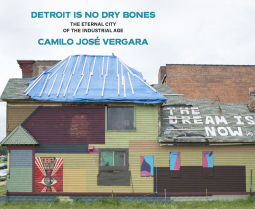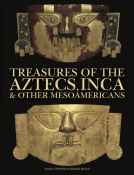
Detroit Is No Dry Bones
The Eternal City of the Industrial Age
by Camilo Jose Vergara
This title was previously available on NetGalley and is now archived.
Send NetGalley books directly to your Kindle or Kindle app
1
To read on a Kindle or Kindle app, please add kindle@netgalley.com as an approved email address to receive files in your Amazon account. Click here for step-by-step instructions.
2
Also find your Kindle email address within your Amazon account, and enter it here.
Pub Date Aug 28 2016 | Archive Date Feb 03 2017
University of Michigan | UNIVERSITY OF MICHIGAN REGIONAL
Description
Available Editions
| EDITION | Hardcover |
| ISBN | 9780472130115 |
| PRICE | $55.00 (USD) |
Featured Reviews
Depending on your age, you think of Detroit as either Motown, or as the center of the car business or as a desolated landscape, with burned our buildings.
This book tackles the last rendition of Detroit. But there is a certain beauty, and sadness is what is documented here, of mansions, of wealth, of people left behind to grow to dust. There was so much wealth in Detroit in the Industrial age, the Gilded age, for it to all have vanished, when industry left, as well as white flight, that it is as though a vacuum sucked out the whole of the downtown.
And what is interesting is what remains, of the street artist, of the preachers, of the people who did not flee, and remained. The author said he was shocked at how few people he actually found to talk to.
Fascinating book, just for the pictures, which cover a 20 plus period of time. Sometimes things get better, but mostly they get worse, or they are gentrified, and it looks like any of a hundred other buildings in the cities of the world.
I would recommend this to anyone who is interesting in seeing what a lost city looks like.
One sad note, so common with books these days, this book, like so many, is being printed in China. We wonder what happened to the industry of the United States?
 John S, Librarian
John S, Librarian
This is an incredible photographic journey into the heart of that very American city Detroit.
Born out of the industrial revolution of the late 19th Century Detroit was one of the shining cities showcasing the glories of the Industrial Age and what it could accomplish and then it became an example of what happens when industry fails Detroit remains a strikingly beautiful city With the indomitable spirit of it's residents Detroit cannot be counted out.
 Felicia S, Reviewer
Felicia S, Reviewer
Detroit Is No Dry Bones is a beautifully presented book that covers a lot of history in Detroit. The photographs are shockingly real and gently sad while still maintaining a good balance of old and new. Some of the photographs were exceptionally framed and could be displayed in art galleries.
Camilo Jose Vergara did a wonderful job with his write ups, that are mixed into the book. Overall, this is a must have book for anyone that has roots in Detroit....or for anyone with a love of Detroit. I also believe this would be a great 'read' for anyone interested in visiting Detroit and seeing it in a more compassionate and intimate way.
I'd love to see more books like this of other cities of importance. We need to remember our heritage and how life used to be.
 Media/Journalist 81423
Media/Journalist 81423
The photos are eery at times. The title is compelling in telling the story of Detroit.
 Paul M, Reviewer
Paul M, Reviewer
If you love Detroit, you will love Detroit Is No Dry Bones: The Eternal City of the Industrial Age, by Camilo Jose Vergara. Detroit is past its prime. No question about that. As Vergara so brilliantly depicts with his architectural photography. My favorite sections of the book focused on the classic 20th century architecture that reflects the great wealth Detroit experienced the first half of the 20th century. Sadly, much of it is in ruins. But it makes for stunning pictures! The amount of the properties, both commercial and residential, that are undergoing renovation is encouraging, but for most of them, the wrecking ball is inevitable.
Vergara is optimistic about the future of the city. Unfortunately, others place too much focus on the burnt-out ruins, abandoned factories and skyscrapers, and brown fields that litter the central city. But the region itself is in good shape economically. Vergara believes the city holds promise. If I'm honest, much of the book won't make many people want to pick up and move to Detroit. The folk art, reclaimed buildings, and bar-covered windows don't scream "This city is on the rise!" But they do hint at life that remains and livability that is returning.
I don't know if Vergara's optimism is misplaced, but it does tend to be contagious. He captures the echos of the prosperous past, when Detroit ranked up there with New York and Chicago, while looking ahead to a prosperous future. Even if you don't love Detroit, pick up Detroit Is No Dry Bones and get a glimpse through the eyes of someone who does.
Thanks to NetGalley and the publisher for the complimentary electronic review copy!
Readers who liked this book also liked:
Andrew Whitfield; Richard McColl
Arts & Photography, History, Travel
Sarah J. Mendonca
Children's Fiction, Multicultural Interest, Sci Fi & Fantasy


















